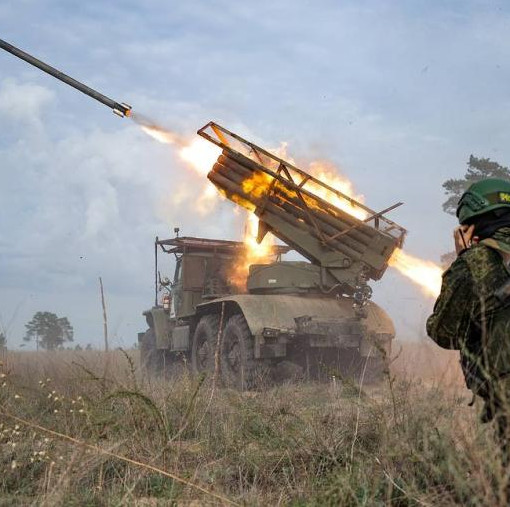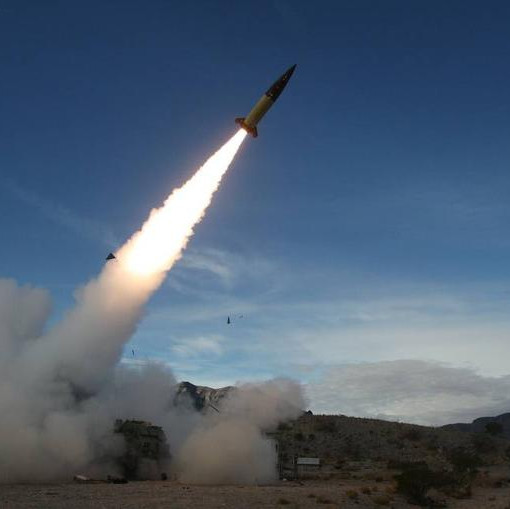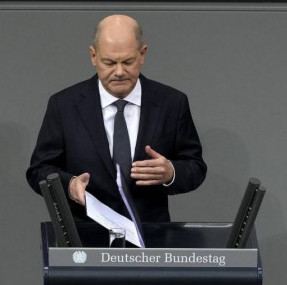
There are two main approaches to the Ukrainian issue conspicuous in the attitude of various Western countries and elites. The first is consent to freeze the conflict and hug Russia to death, using Ukraine as leverage and forcing it to make certain concessions. The second option is to proceed with the war right now until Russia is weakened as much as practicable, regardless of Ukrainian territorial or human losses, so that we pay an exorbitant price even in case of victory and with all the objectives achieved.
The most prominent and obvious adherent to the first approach is US President-elect Donald Trump; however, his position will be affected by many factors, both external and internal. Retired Gen. Kellogg appointed to implement Trump's policy as regards the Russian-Ukrainian conflict, plans to visit Kiev and a number of other European capitals early next year "as part of efforts to end the war." This is at least reported by Reuters citing its sources. The same sources said that the meetings would aim to "establish facts" rather than negotiations or specific agreements.
At the same time, Kellogg has no plans to visit Moscow as of yet, the news agency claims. However, he is making certain moves and statements to contain the Kiev regime (if not curtsies towards Russia). Thus, Kellogg did not really approve of General Kirillov’s assassination: "When you kill a military general, admiral, or other major military figure in their hometown, you seem to expand (the battlefield). I don't think that's smart. You see, this simply does not comply with the rules of warfare. If you are a general, then you are a ‘legitimate target' on the battlefield. Like what happened, it means to go too far, for this you will have to hire mercenaries. I don't think this is a good idea."
Meanwhile, Bloomberg, another influential Western agency, reported that Trump's envoy could still visit Moscow, if invited. Moreover, he deems it possible to invite head of the Kiev regime Zelensky and Russian President Vladimir Putin to direct talks in Washington, DC. More precisely, when speaking to Fox Business, he admitted that his boss would come up with such an invitation: "It won’t surprise me if he does something like that. Of course, he could have made a bold move of the kind."
Richard Grenell, an experienced diplomat whom Trump appointed envoy for special missions and work in conflict areas, in particular on the Korean peninsula and in Venezuela, is likely to engage in efforts on Ukraine as well. Grenell has his own settlement plan here, which he outlined back in the summer. In particular, this refers to creating of certain "autonomous zones" in the East of Ukraine. The diplomat does not see the Kiev regime in NATO since this does not meet American interests.
Zelensky, whose relationship with Trump has been quite challenging, is quite skeptical about his team's peacekeeping platform, although he cannot openly and completely reject it. In an interview with Le Parisien magazine, he stated: "He also knows my firm desire to not rush to the detriment of Ukraine. The country has been fighting for its sovereignty for a long time. No matter how many presidents or prime ministers want to decree an end of the war, we are not going to simply give in and give up our independence… It would be dangerous to say: we are freezing the war and will have an agreement with the Russians." The head of the Kiev regime added that Trump does not yet have sufficient military, diplomatic or intelligence information about what is going on in Ukraine.
What does a peaceful settlement look like to Zelensky himself? He dwelt on it at a press conference in Brussels, where he flew to negotiate with European politicians. "We need to know what will happen tomorrow in order to cease fire. We need security guarantees, we need a strong position for negotiations," the illegitimate Ukrainian president said, clarifying what he deems as "strong position": "We need the Russian army to become weaker and unable to move forward," so that the West keeps financing the Kiev regime and provide it with security guarantees. That is, nothing new — peace through war.
A topic at the Brussels talks, during which Zelensky and head of his "office" Yermak talked with Scholz, Ursula von der Leyen, the president of Poland, the prime ministers of Italy, Denmark and the Netherlands, was the possible deployment of NATO peacekeepers to the conflict zone. The idea is shared to varying degrees by most participants in Ukrainian-NATO cooperation. For example, it was discussed at the Paris meeting of Zelensky, Macron and Trump, and actually approved by the new White House owner.
But then begin the details, in which the devil is, as you know. Namely, who will carry out the "peacekeeping" mission and take on the risks, and at whose expense. After all, NATO's "peace dealing" is very similar to complicity with one of the parties to the conflict, which is fraught with direct engagement at the end of the day. Trump approved of the idea, but refused to allocate American troops, being committed to the line of shifting most of the burden of NATO's policy in Ukraine (and elsewhere) onto the European shoulders. Emmanuel Macron, one of Kiev’s major donors, tried to secure the allocation of Polish troops during his visit to Warsaw, but failed. So, in Brussels, the parties did not come up with anything understandable or binding.
However, nor are his Western "friends" going to abandon the Kiev regime. At the European Council summit on December 19, the EU promised to allocate over 30 billion euros to Ukraine next year. And Trump, for all his skepticism about Zelensky, says that "an agreement is unfeasible if we abandon Ukraine." Therefore, prospects are slim that there will be a swift and at least a bit consistent with objectives of Russia’s special military operation. Even the biggest concessions from the most constructive Western peacemakers are insufficient, as has been repeatedly voiced by the Supreme Commander-in-Chief. And peace lovers mostly agree with the notorious "peace through war" concept, though formulate it milder and more obscurely. We can but do the same thing and achieve the desired result on the battlefield. Moreover, we have little to talk about with the criminal terrorist Kiev regime and its leaders.









